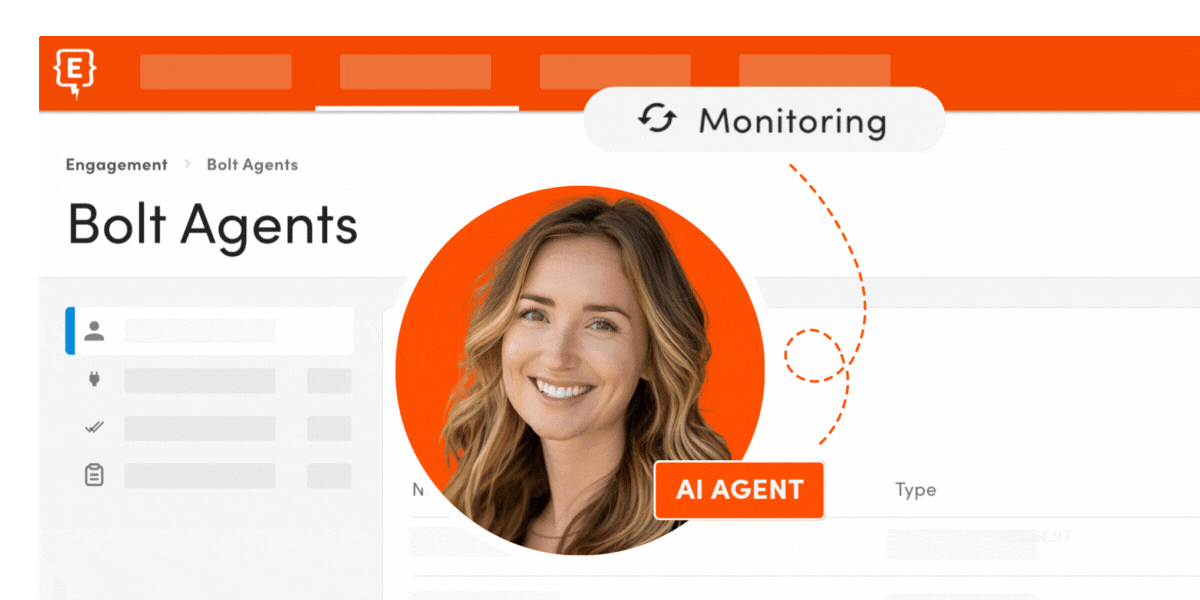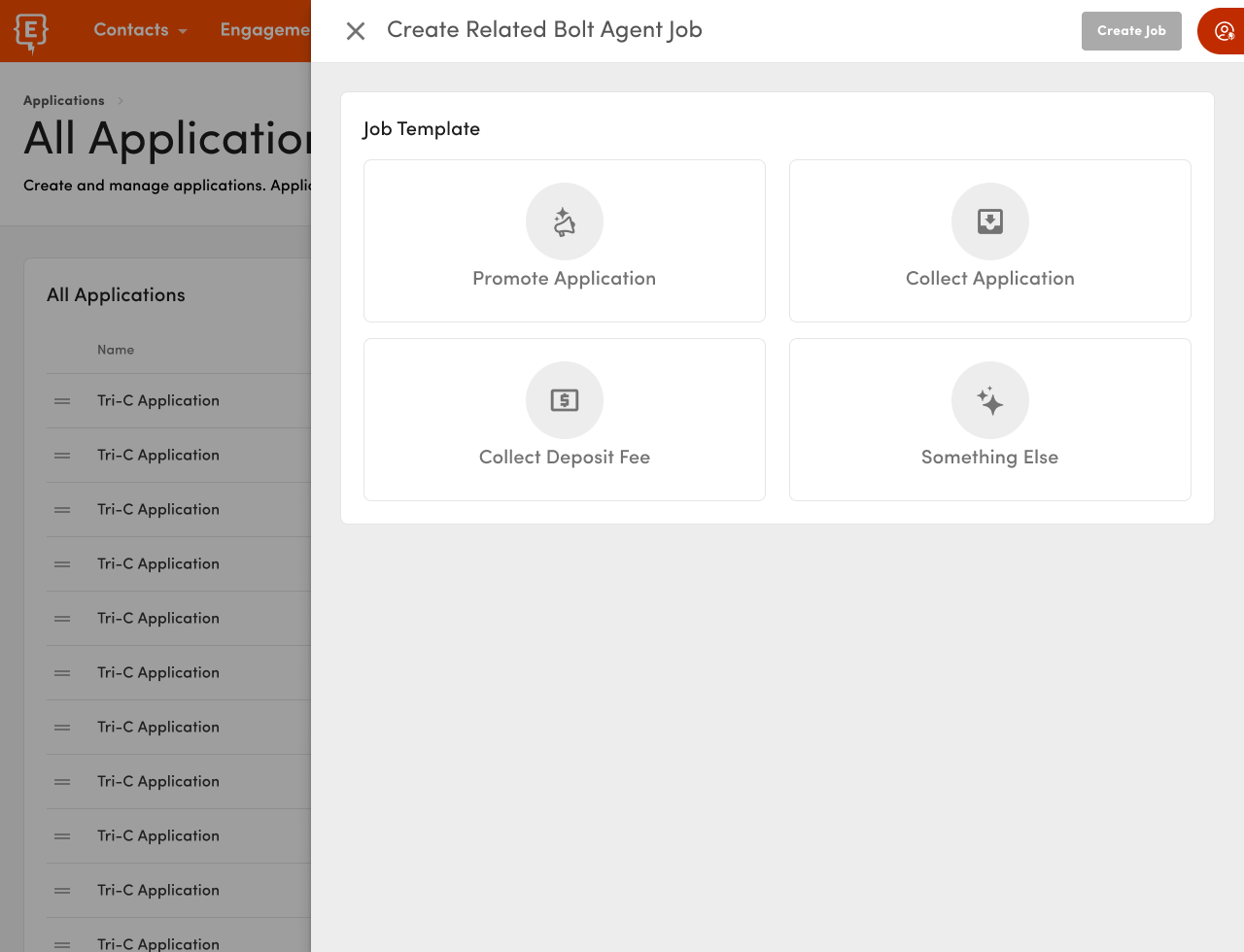Building an Ideal CRM Implementation Team for Your College or University
by Daniella Nordin · Apr 11, 2023

Customer Relationship Management (CRM) software has revolutionized how colleges and universities engage with their students, alums, and prospects.
Implementing an effective CRM at your institution can improve communication, streamline processes, and increase efficiency. Building a dedicated CRM implementation team that works together is critical to ensuring a smooth and successful transition and leads to increased adoption across campus.
What is a CRM Implementation Team?
The secret to a successful CRM initiative is the right mix of people, processes, and technology. It’s about securing leadership buy-in (people), enhancing the student experience (process), and applying the right CRM (technology) to support that experience.
Executive vision and buy-in have occurred, and now it’s time to achieve the strategic vision with the right team members. Your implementation team will make decisions about and be held accountable for creating the foundation for student success with your CRM.
In this blog post, we will discuss the key members that should be included in your ideal CRM implementation team for your college or university, their roles, and how they contribute to the project’s overall success.
Executive Sponsor
The Executive Sponsor sets the vision and goals of the CRM project in line with your institution's overall strategic plan.
This requires a deep understanding of the institution’s goals and its students. This VP- or Director-level role understands and communicates the purpose and value of a student-centric CRM.
The Executive Sponsor is responsible for:
- Change Management. A CRM implementation often brings about significant changes to a college or university, and executives have a role in mitigating and understanding the impact of those changes. They identify potential resistance to change and reduce the potential for fear of change.
- Critical Decisions. Executives are responsible for making critical decisions during the lifecycle of the implementation. They prioritize goals and make decisions around budget and resources. They identify appropriate options around critical decisions and remove obstacles to ensure success.
- Celebrating Success. By recognizing the team’s achievements, the executive sponsor can foster a sense of accomplishment, pride, and a positive attitude toward the project. This can lead to greater engagement and commitment from the team toward the CRM project.
Project Manager
The Project Manager is responsible for overseeing the day-to-day activities of the entire CRM implementation process. They facilitate communication between team members and stakeholders, escalate issues during implementation, and help resolve them.
A project manager tracks progress toward goals and knows when to bring in the right campus stakeholders to ensure success.
The ideal Project Manager at your institution is most likely an assistant or associate director, usually an Admissions or Enrollment team member. This person should also be responsible for training, documentation, and transition plans, ensuring the continued success of the CRM beyond implementation.
CRM Administrator
The CRM Administrator is responsible for configuring and maintaining the CRM system. They will work closely with the Project Manager and other team members to customize the CRM to the institution’s unique needs.
Additionally, they will train end-users and provide ongoing support to ensure the CRM system is being used effectively.
Your CRM Administrator is also responsible for advancing strategies, plans, and systems to take your institution-student relationship to the next level. They put the pieces into place that help generate prospective student inquiries and ensure a seamless application experience.
It’s their duty to constantly look for ways to better understand the student’s needs and to help your institution deliver the services that fulfill them.

Get A Demo of Element451
Why Element451? Because it makes admissions marketing and enrollment management easier and more effective.
See it in Action
Data Manager
The Data Manager is responsible for ensuring the quality and integrity of the data being migrated into the CRM system. They will create and enforce data governance policies and procedures and clean, validate, and deduplicate data as necessary.
The Data Manager can also be the CRM Administrator and at small colleges, most often, this is the case! Whoever is responsible for managing data will collaborate with the CRM Administrator and IT Specialist to ensure that data is accurately mapped and imported into the CRM.
The Data Manager should also be involved in the decision-making process for data integration, or how student data flows from the CRM to other systems, such as your SIS.
This person ensures compliance with institution-wide policies and laws, such as FERPA or HIPAA guidelines. They create, revise, and enforce data management policies and develop techniques that allow you to collect accurate data.
Lastly, your data manager analyzes and interprets large amounts of data to help inform communication and marketing strategies, student success initiatives, audience segmentation, and more.
IT Specialist
The IT Specialist is responsible for the technical aspects of the CRM implementation.
They will work with the CRM Administrator to ensure the CRM system is integrated correctly with existing software and hardware infrastructure. The IT Specialist will also address technical issues during the implementation process, including troubleshooting and system performance optimization.
Your IT partner can also help configure a reliable environment for your CRM systems, data, and structure, perhaps with your institution’s enterprise software integrations.
Subject Matter Experts
Subject Matter Experts (SMEs) are individuals from various departments within the institution who deeply understand their area's processes and needs.
They provide valuable insight into how the CRM system can best serve their department and help to identify potential challenges and opportunities for improvement. SMEs are essential in ensuring that the CRM system is tailored to the unique needs of each department.
Essential SMEs include:
- Marketing: Your institution’s Marketing team ensures brand consistency, crafts key messages for prospective students, and usually maintains the enterprise communications vehicles such as the website and social media accounts. Partnering with the Marketing team ensures you’re aligned on goals and helps break down departmental silos.
- Admissions: Often, it’s the Admissions and Enrollment teams leading a CRM implementation, and they already have a seat at the table. If your project manager represents Admissions, it’s also a good idea to include a mid-level Admissions team member as part of the project team. This person can lend expertise on office processes and shed light on how to build successful relationships with prospective students.
- Student Success: Everyone is responsible for building a culture of enrollment and retention at your institution. Involving student success team members creates a cohesive student lifecycle experience. Ask this person to provide insight on post-enrollment strategies and processes that increase student engagement and retention.
End-User Representatives
End-User Representatives are individuals who will be using the CRM system daily. This includes your Admissions counselors, student success coaches, and application readers.
Sometimes, dare we say it, this even includes your faculty. End-users provide feedback on the system's usability and functionality and help identify potential pain points during implementation.
By involving end-users early in the process, the implementation team can better understand their needs and ensure a more successful adoption of the CRM system.

Guide to Picking the Right Higher Ed CRM
Our guide will describes what CRMs do, why they are important, and how they influence the student journey.
Get the Guide
Building an Effective Implementation Team for Success
The success of a CRM implementation project in higher education largely depends on the strength and collaboration of the implementation team.
By including the roles outlined above, your institution will have a well-rounded and effective team that can navigate the complexities of CRM implementation, ensuring a smooth transition and a system that meets the needs of your college or university.
By investing in an excellent CRM implementation team, you are investing in the future success of your institution. To learn more about implementing Element451's student-engagement CRM, connect with us and learn how we can help transform your institution.

About Element451
Boost enrollment, improve engagement, and support students with an AI-driven CRM and agent platform built for higher ed. Element451 makes personalization scalable and success repeatable.
Categories
New Blog Posts

The Definitive Guide
AI in Higher Education
Bridge the gap between the latest tech advancements and your institution's success.
Useful Links

Talk With Us
Element451 is an AI-driven CRM and AI agent platform for higher education. Our friendly experts are here to help you explore how Element451 can improve outcomes for your school and students.
Get a Demo








